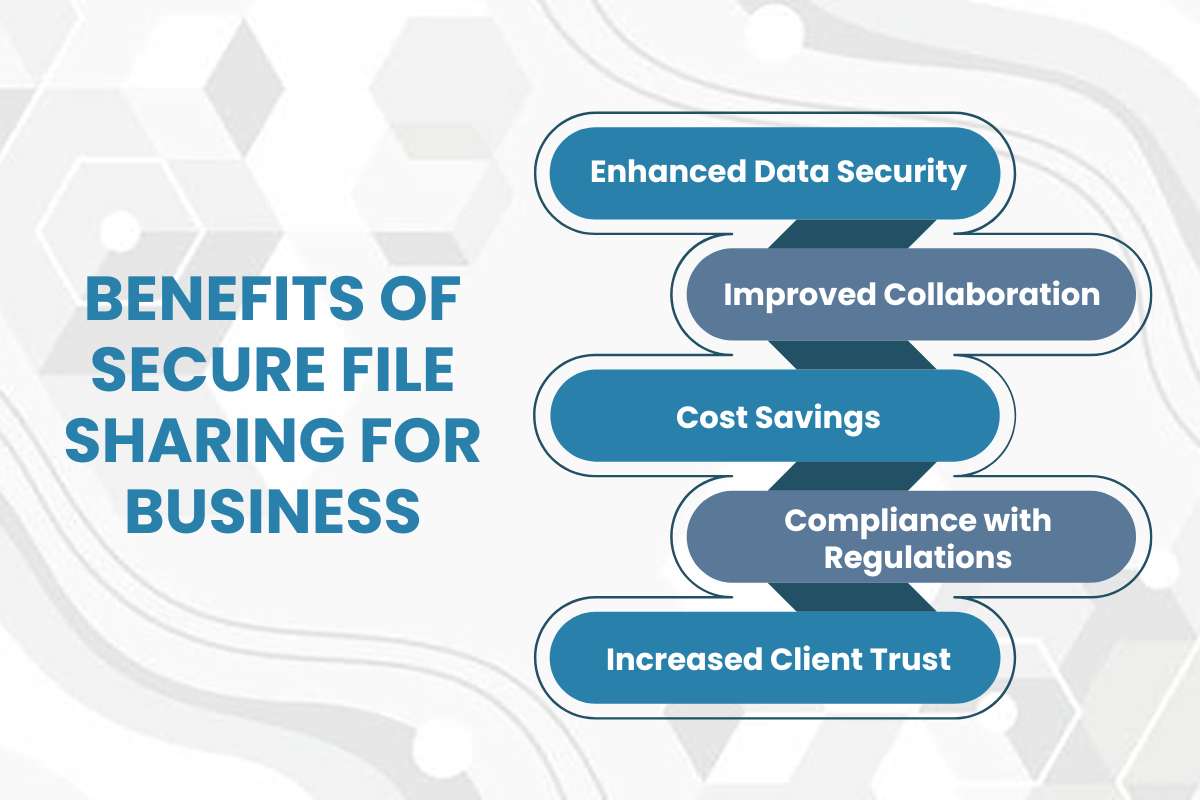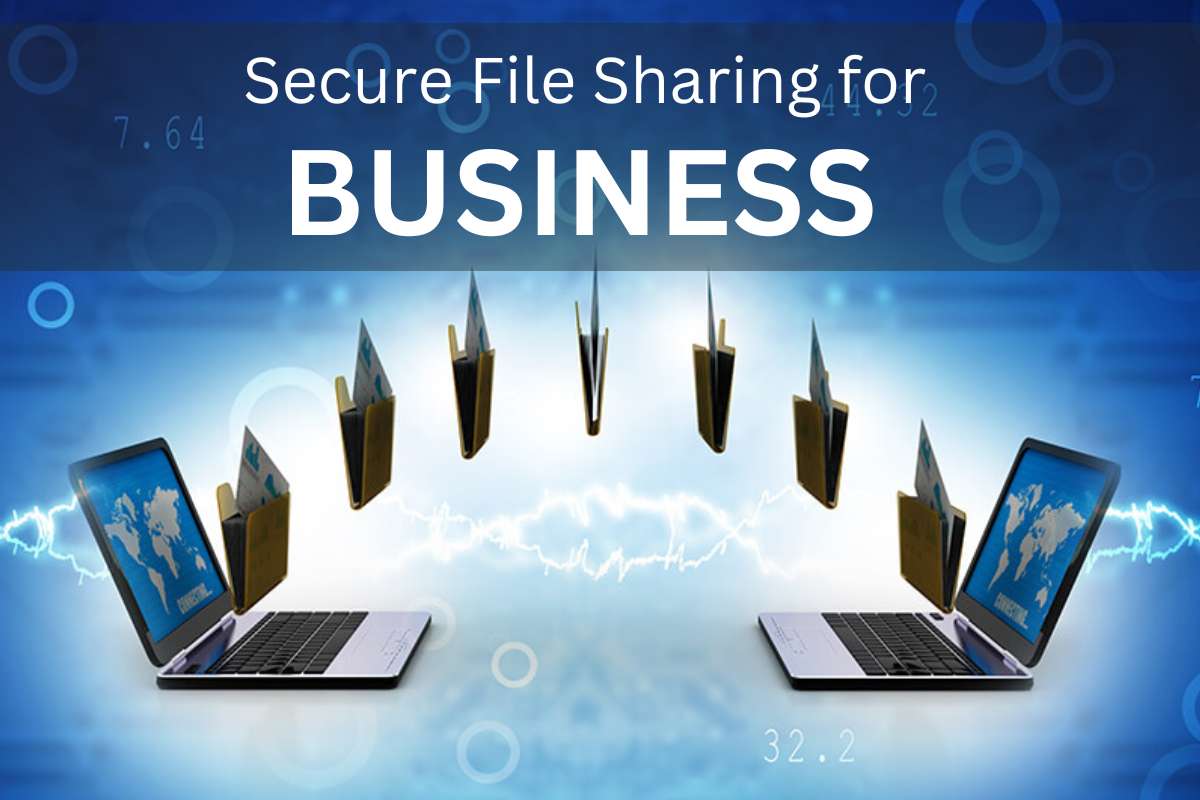Businesses regularly exchange sensitive information with clients, partners, and remote team members. From financial records to customer data, securely sharing files is necessary for maintaining trust and clarity. Secure file sharing ensures that valuable business data is protected from unauthorized access, helping companies avoid breaches.
This guide will give you the essentials of secure file sharing for business, exploring best practices and trusted methods to keep your data safe.
What Is Secure File Sharing?
Secure file sharing refers to the practice of safely transferring files between users, systems, or devices using tools and protocols that protect data during storage and transmission. It helps prevent unauthorized access, data breaches, and cyber threats, making it important for businesses that handle sensitive information. Secure file sharing for businesses provides encryption, secure servers, and user authentication to ensure that only authorized persons can access critical business files.
Why Secure File Sharing Matters for Business?
With an increasing number of businesses shifting to remote work and digital collaboration, secure file sharing has become essential. Here’s why secure file sharing should be a priority:
1. Protecting Sensitive Data
Businesses handle confidential information daily, from employee records to proprietary data. Secure file sharing prevents unauthorized access to this sensitive information, to save the business from potential losses or legal liabilities.
2. Maintaining Compliance
Certain industries, such as healthcare and finance, are governed by strict regulatory standards (e.g., HIPAA, GDPR). Secure file sharing in business provides solutions to ensure that businesses follow these regulations, avoid potential fines, and maintain trust with clients and customers.
3. Building Trust
Clients and partners are more likely to trust a business that prioritizes data protection. Using secure file sharing demonstrates a commitment to saving client information, which can enhance your company’s reputation and customer loyalty.
Best Practices for Secure File Sharing in Business
Adopting secure file sharing involves more than just choosing the right software. Here are the best practices that every business should follow to ensure the highest level of data security:
1. Use Encrypted File Sharing Solutions

Encryption is the backbone of secure file sharing. With encryption, files are converted into unreadable code during transit and are only decrypted by authorized recipients. Choosing an encrypted file-sharing solution protects your data from cybercriminals and hackers. Look for platforms that provide end-to-end encryption, meaning that data is encrypted at every stage of transfer.
2. Implement Multi-Factor Authentication (MFA)
Multi-factor authentication (MFA) adds an extra layer of security by requiring users to verify their identity through multiple methods, such as a password and a one-time code. This is particularly important for secure file sharing, as it reduces the risk of unauthorized access, even if a password is leaked.
3. Define User Permissions and Access Controls
Not everyone in your organization needs access to every file. Implementing user permissions and access controls is an essential part of secure file sharing. By restricting access to specific files based on roles, businesses can limit exposure to sensitive information and reduce the risk of internal data leaks.
5. Regularly Update and Patch Software
Outdated software can be vulnerable to cyberattacks. Ensure that your secure file-sharing software is updated regularly to address any security patches and improvements. Also, encourage employees to update their devices and software to maintain strong defenses.
6. Use Cloud-Based Secure File Sharing Platforms
Many businesses are turning to cloud-based secure file-sharing platforms, which offer scalability, flexibility, and secure data access from any location. Cloud solutions often provide advanced encryption, user management, and security features, making them ideal for businesses with remote teams.
Leading Tools for Secure File Sharing for Business
When choosing a secure file-sharing solution, consider platforms that are widely trusted and offer security features. Here are some popular options for businesses:
1. Dropbox Business
Known for its user-friendly interface, Dropbox Business offers file encryption, administrative controls, and security with several industry standards. It’s ideal for small to medium-sized businesses who are looking for a secure file-sharing solution.
2. Google Workspace

Google Workspace provides secure file-sharing capabilities through Google Drive, with built-in encryption and access controls. It also offers multi-factor authentication and integration with other Google tools for seamless collaboration.
3. Microsoft OneDrive for Business
Microsoft OneDrive for Business is a secure file-sharing solution that provides end-to-end encryption, advanced user permissions, and seamless integration with Microsoft Office applications. Its high-security standards make it suitable for various industries.
4. Box
Box is a cloud-based secure file-sharing platform with robust data protection features, including encryption, user permissions, and advanced access control. The box is the best for larger organizations or industries with strict compliance requirements.
5. Citrix ShareFile
Citrix ShareFile is designed specifically for secure file sharing in business environments. It offers powerful security features like end-to-end encryption, and role-based permission, making it suitable for industries handling highly sensitive data.
Benefits of Secure File Sharing for Business

Adopting Secure file sharing for business practices offers numerous benefits to businesses:
1. Enhanced Data Security
Secure file sharing protects valuable business data from unauthorized access and cyberattacks, providing peace of mind and security to both employees and clients.
2. Improved Collaboration
With secure file-sharing solutions, team members can easily access and share files remotely, fostering better collaboration and productivity.
3. Cost Savings
Using a secure file-sharing platform can reduce expenses associated with data breaches and regulatory fines, helping businesses avoid potential financial setbacks.
4. Compliance with Regulations
Many secure file-sharing solutions are designed to meet industry-specific regulations, making it easier for businesses to remain compliant.
5. Increased Client Trust
Demonstrating a commitment to secure file sharing reassures clients and customers that their information is in safe hands, ultimately building loyalty and trust.
Final Thoughts
Secure file sharing for businesses not only prevents unauthorized access and cyber threats but also helps businesses maintain compliance with industry regulations. With the right secure platform in place, companies can improve collaboration, boost productivity, and provide clients with peace of mind. It is the first step towards building a secure, efficient, and trustworthy business environment.
For organizations of all sizes, secure file sharing is no longer a luxury but a necessity. By ensuring secure file sharing, businesses can protect their data, build trust with clients, and focus on what matters most: growing and succeeding in competitive business.






